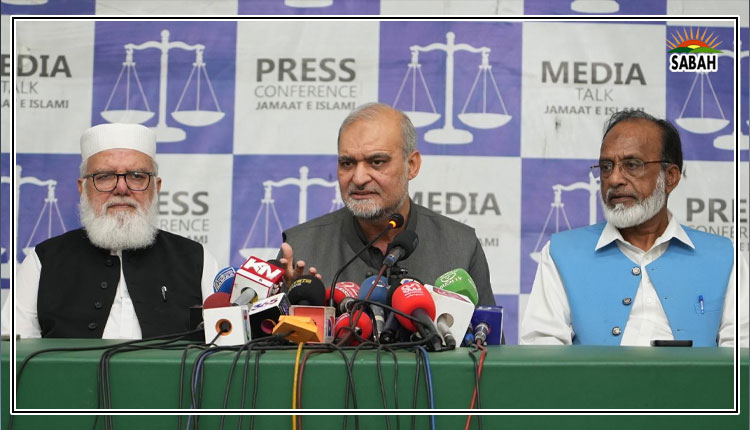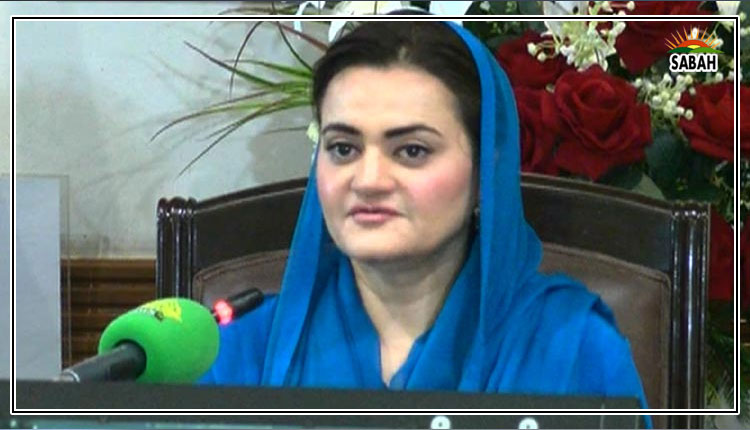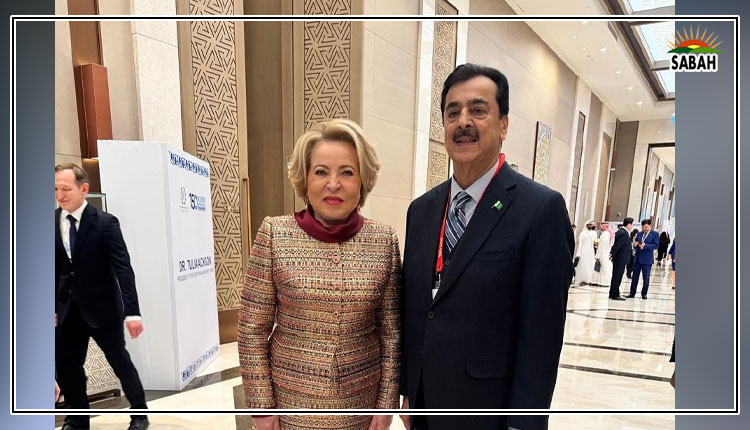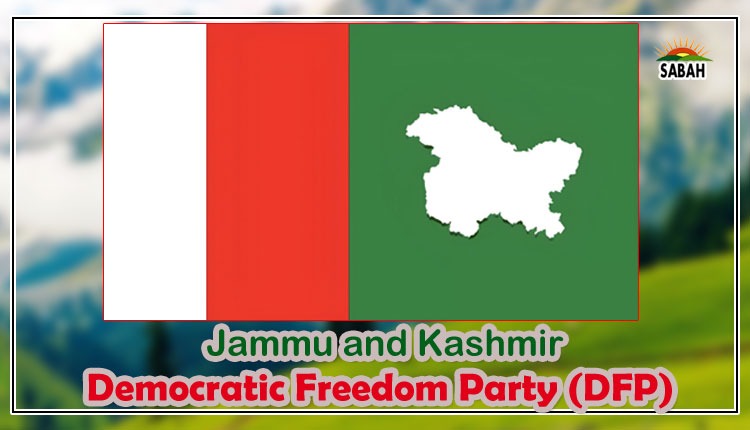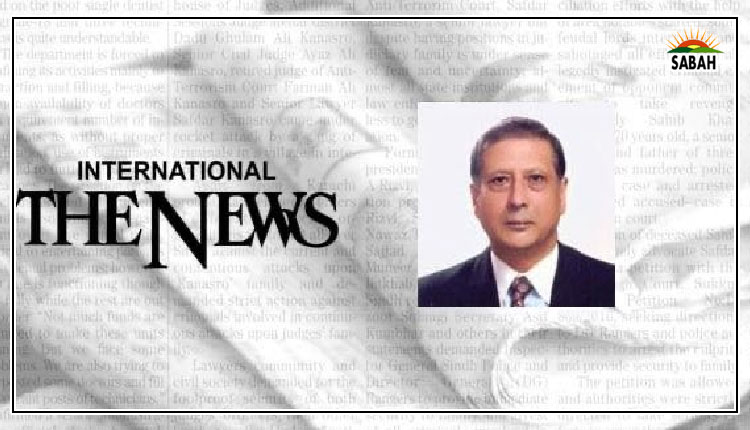As the Middle East transforms … Javid Husain
The Middle East is at the center of momentous developments which have significantly transformed the region over the past decade with far-reaching implications for its political stability, security, and economic progress.
The location of the region at the hub of international trade and transportation routes, its preponderant weight in the global oil and gas market, and its significance from historical, cultural, and religious points of view make these developments critically important for global peace and prosperity. This is particularly true for Pakistan with its location in the proximity of the region, its deep historical, political, cultural, and economic ties with Middle-Eastern countries, and the extensive presence of its diaspora in many of them.
Historically, the Middle East has occupied a special position in the cultural evolution of humankind with three great monotheistic religions – Islam, Christianity, and Judaism – tracing their roots to it. Several great empires, which originated from the Middle East, spread their political and cultural influence in other regions during the forward march of humanity.
The Middle East for centuries has also been at the crossroads of international trade and transportation routes. Its position as a hub of these routes has been strengthened in modern times, especially after the opening of the Suez Canal. Approximately 30 per cent of the world’s shipping containers pass through the Suez Canal. About 16 per cent of its air cargo flies via airports in the Gulf.
The region is rich in hydrocarbons. According to the weekly Economist, it accounts for 36 per cent of the world’s oil production, 46 per cent of oil exports, 22 per cent of natural gas output and 30 per cent of liquefied natural gas (LNG) exports. The region has vast hydrocarbon reserves (52 per cent of the world’s total for oil and 43 per cent for gas) and low production costs. Its sovereign-wealth funds with $3 trillion of assets are among the world’s largest. These resources provide the rulers of the countries in the region with the capability to modernize it through social and economic reforms.
Out of the Gulf countries, Saudi Arabia and the UAE have taken the lead in accelerating the pace of economic progress through reforms aimed at social liberalization (for example: 31 per cent of Saudi women were employed in the first quarter of this year as against only 16 per cent at the same time in 2017) and economic diversification. They are focused on the utilization of income from oil and gas for development of industry, agriculture, infrastructure and tourism instead of parking them in American treasury bonds as in the past.
They are also focusing on the diversification of their political and economic ties abroad instead of relying exclusively on the Western countries, and on alleviation of regional tensions and conflicts. Other countries like Qatar, Kuwait, Bahrain, Iraq, and Oman are also affected by these trends which carry the promise of reshaping the Middle-East region in the coming decades.
A big question, however, is how these momentous developments will impact the prevailing monarchical and authoritarian political systems in most of the Middle-Eastern countries with their embedded vast inequalities of income and wealth. It is inevitable that as programmes of social liberalization take root in the regional countries and their peoples become better educated, there will be growing demands for representative forms of government and the eradication of inequalities of income and wealth. It remains to be seen how the leaders in these countries adapt their political and economic systems to these demands. Saudi opposition to the prospect of the acquisition of nuclear weapons by Iran is another issue which deserves close attention.
Perhaps the most significant development in the region at the geopolitical level is the rapid development of relations between Saudi Arabia and China. In the 1990s, China accounted for less than one per cent of Saudi Arabia’s crude oil exports. The comparable figure rose to 28 per cent by 2021. China’s growing clout in Saudi Arabia and Iran enabled it to facilitate the deal leading to the restoration of full diplomatic relations between the two countries earlier this year. It is worth noting that India has also seen its share of Saudi Arabia’s crude oil exports grow from less than three per cent in the 1990s to 12 per cent in 2021.
The region’s growing influence at the global level was recognized by BRICS in August when it invited four Middle Eastern countries including Egypt, Iran, Saudi Arabia, and the UAE to join the club. Later this year the UAE will host COP28, the global climate summit. The unveiling of the India-Middle East-Europe Corridor by Saudi Crown Prince MBS on the sidelines of the recent G20 summit in New Delhi is another indicator of the growing integration of the Middle East in the global economy.
The Iran-Saudi peace deal was not the only sign of the easing of tensions in the region. A ceasefire has brought about relative calm in Yemen. Syria was reintegrated within the Arab League in May 2023. There is considerable diminution of the activities of terrorist organizations in the Middle East. However, the Palestinian issue continues to fester, denying the Palestinians their national rights despite the Abraham Accords under which four Arab countries including the UAE, Bahrain, Morocco, and the Sudan established full diplomatic relations with Israel.
The US is currently urging Saudi Arabia to join the Abraham Accords. The Palestinian issue would be a major hurdle in the way of a Saudi-Israel deal. But considering the prevailing political and economic trends in the Middle East and the recent interview of Crown Prince MBS to Fox News, the possibility of a peace deal between the two countries cannot be totally ruled out if certain specific conditions relating to the settlement of the Palestinian issue are fulfilled by Israel.
Pakistan for obvious reasons must keep a close watch over the situation in the Middle East region. While maintaining our support to the Palestinian cause, it is equally important for us to remain within the ambit of the OIC and the Arab consensus on the subject. This would require us to remain in close consultation with other Muslim countries like Saudi Arabia, Iran, Turkey, Indonesia, Malaysia, Iraq, and Egypt. The evolving situation in the Middle East also demands the strengthening of our political and economic ties with the regional countries especially Saudi Arabia, Iran, Turkey, the UAE, and Qatar. A politically stable and economically strong Pakistan is a prerequisite for this purpose.
The writer is a retiredambassador. He can be reached at: javid.husain@gmail.com
Courtesy The News



